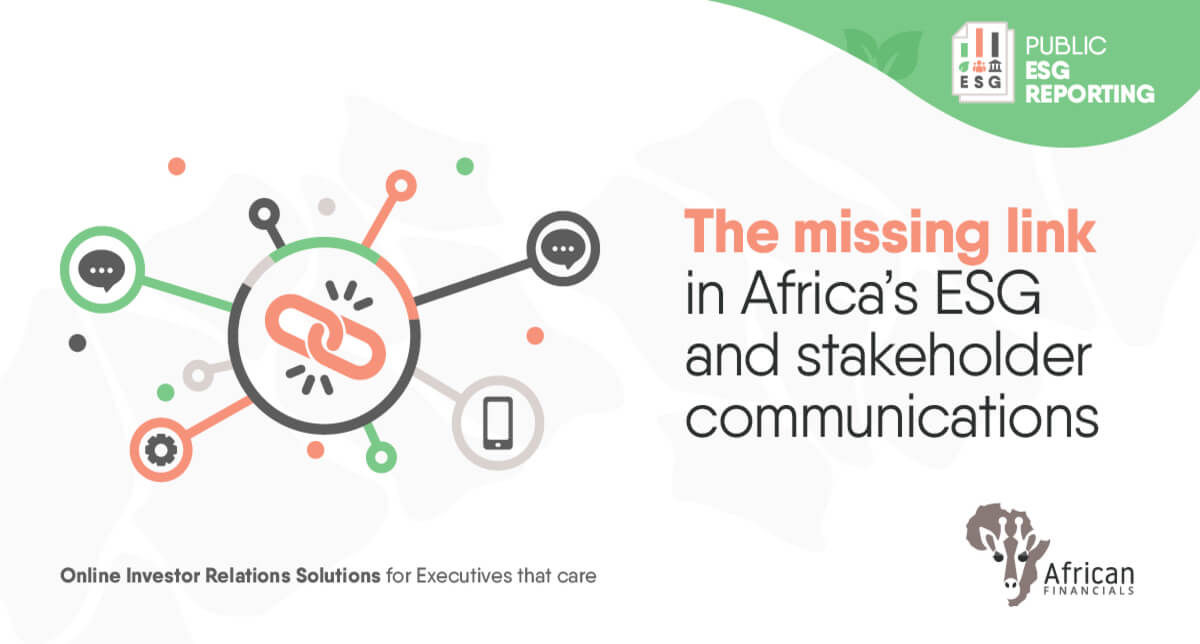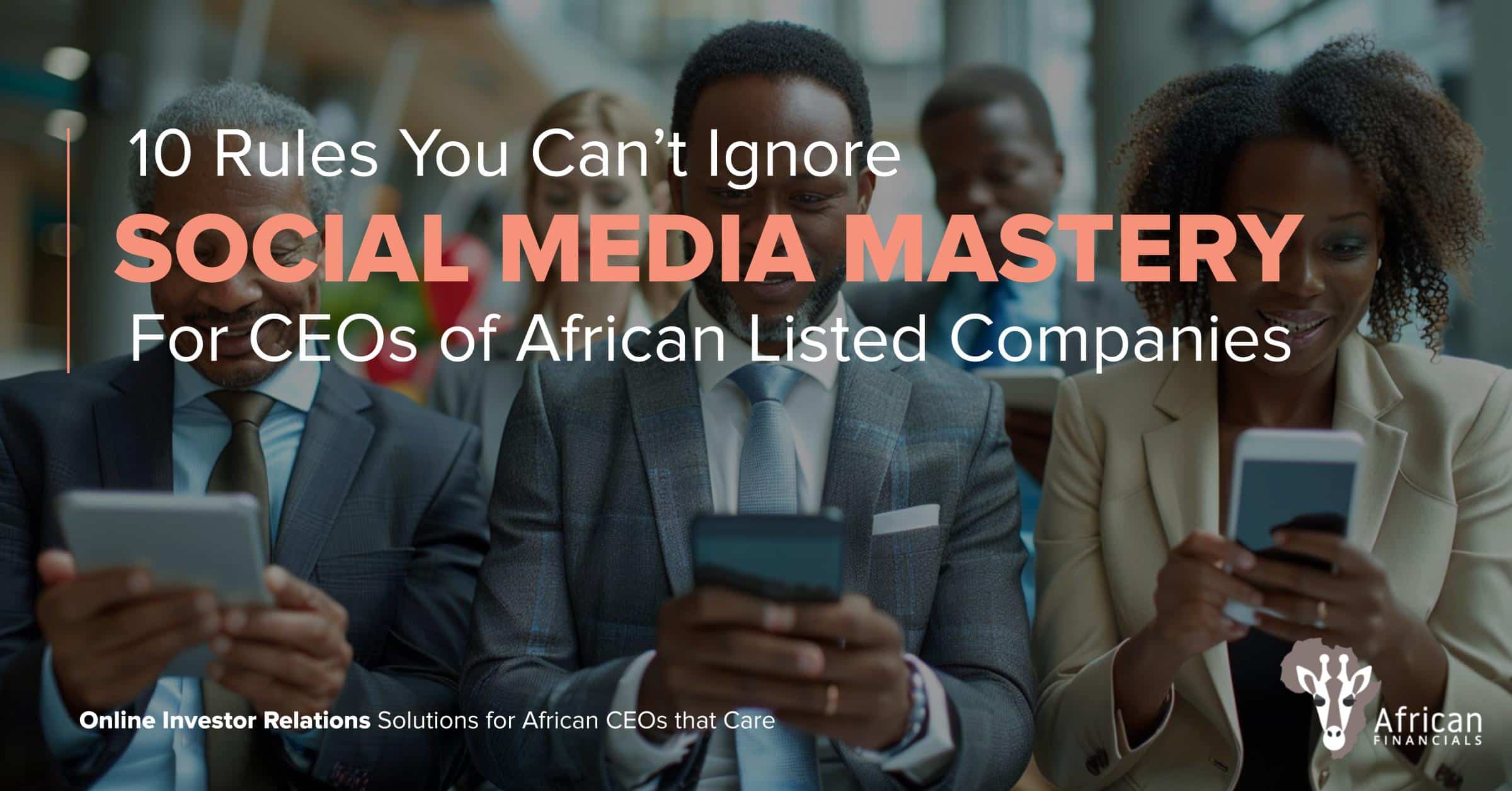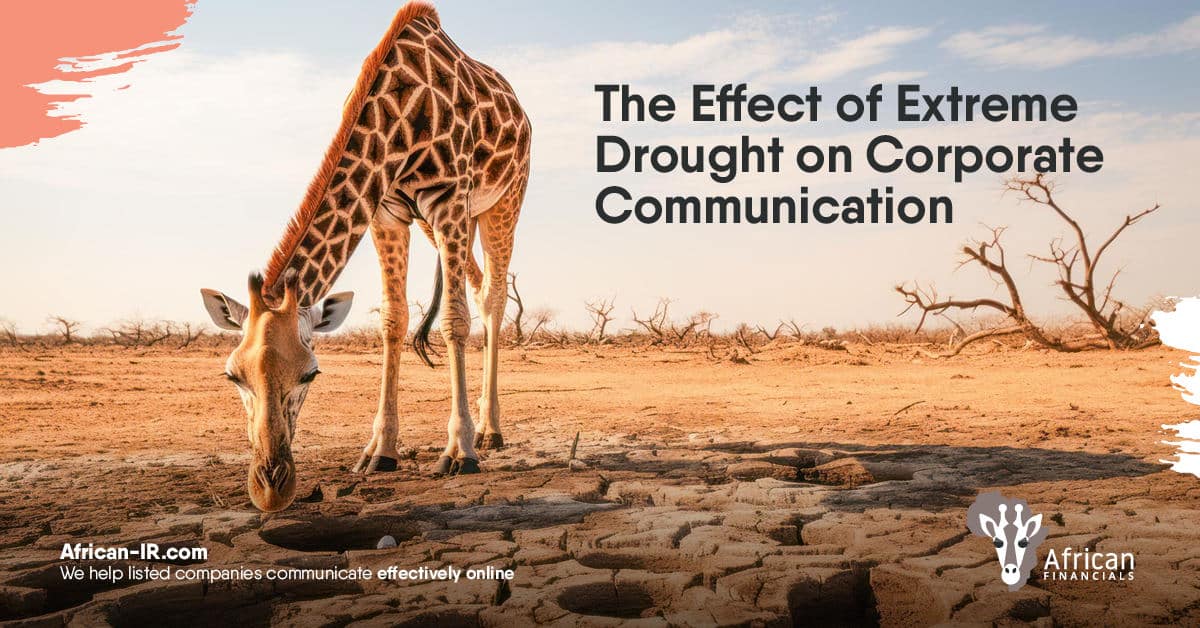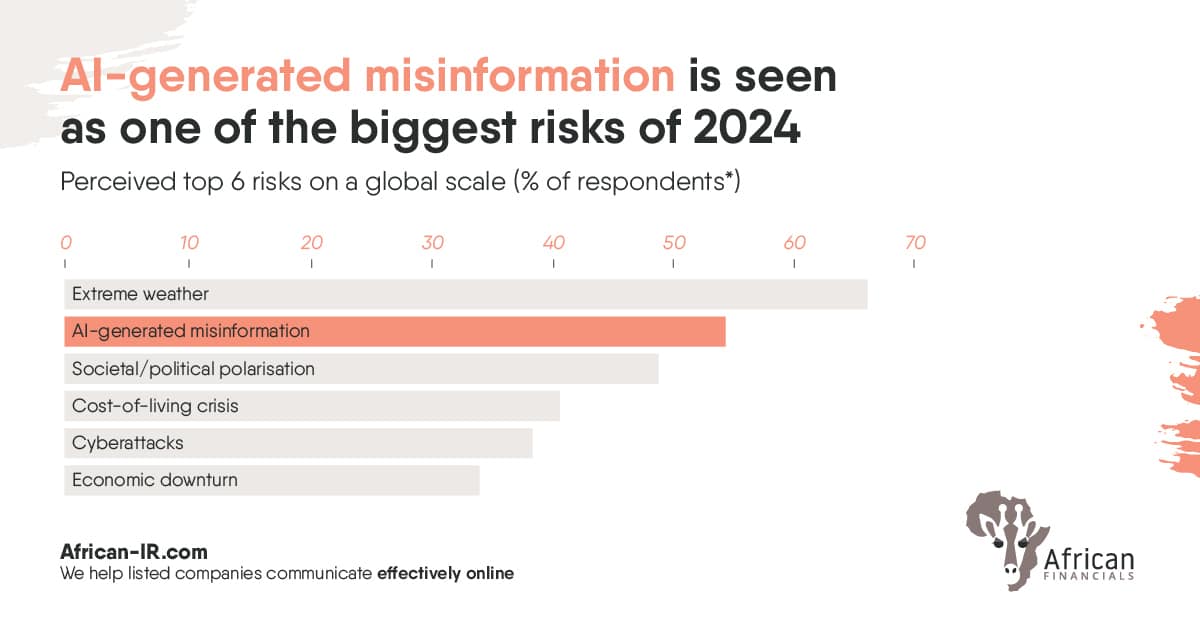
The spotlight on stakeholder capitalism sits within the broader context of widening wealth disparities globally.
Given that some of the largest national wealth gaps in the world are in African countries, is there a risk of stakeholder capitalism gaining traction in the region?
Not an impossibility – 6 of the 10 highest GINI coefficients are recorded in African countries.*
*https://data.worldbank.org/indicator/SI.POV.GINI
High company profits and the disparity between the rich and poor is a strategic PR risk to our listed companies. Particularly in this digital age where companies in African markets have access to capital from international markets – markets where the conversation around ESG and stakeholder capitalism is far more progressed.
To avoid deterring potential international investors, companies need to employ strategic corporate communications.
Previous articles have discussed how companies should communicate the value they create for all stakeholder groups and show the far reaching benefits of the business’ profitability.
But a crucial add-on is emphasising that the company engages in free and open competition without deception or fraud, effectively described by Dr Peter Crow in his article below titled ‘Understanding Friedman, 47 years on’.
Omitting the latter leaves room for criticism without an avenue for defence regardless of an organisation’s commitment to fair and sustainable business practices.
Companies must communicate strategically if they are to mitigate these risks.
Rob
Understanding Friedman, 47 years on
In September 1970, The New York Times Magazine published an article that subsequently became a catalyst, a touchpaper even, for a step change in the understanding of the purpose of business and, as a consequence, the priorities of managers and boards of directors. Milton Friedman, an economist and Nobel laureate, argued that the doctrine of ‘shareholder primacy’ should prevail over that of ‘social responsibility’.
The article garnered much attention (becoming seminal along the way) especially amongst those shareholders, directors and managers for whom the maximisation of profit was of primary (read: exclusive), interest. The statement most commonly used to justify the profit maximisation doctrine is right at the end of the article:
There is one and only one social responsibility of business—to use its resources and engage in activities designed to increase profits.
Superficially, this statement is pretty clear: the purpose of business is profit and nothing else matters. But this statement is incomplete, a portion of a longer sentence. To stop reading at ‘increase profits’ is to read Friedman out of context. The complete sentence is as follows:
There is one and only one social responsibility of business—to use its resources and engage in activities designed to increase profits so long as it stays within the rules of the game, which is to say, engages in free and open competition without deception or fraud.
Friedman was clear. He argued that the maximisation of profit is an important priority of companies, and he argued that this is not, and cannot be, an unbounded endeavour—much less an exclusive one.
The proviso followed without as much as a comma—the pursuit of profit needs to occur within the context of prevailing law and regulation (rules of the game), competition and fair play.
That Friedman’s guidance was so clear begs a rather awkward question: Why has it been misinterpreted by so many shareholders and boards?
Peter Crow PhD
Dr. Peter Crow is an accredited company director and chair, and an advisor and educator with deep expertise in corporate governance, strategy and effective board practice. He also speaks and writes on topical board matters and undertakes governance research. A dynamic thinker, his insightful guidance has proved invaluable to the fortunes of a wide range of enterprises, across five continents.
Peter has a doctorate in corporate governance and strategy (a pioneering study explaining how boards influence firm performance).
This article, authored by Dr Peter Crow, was originally published on the Musings blog: “Understanding Friedman, 47 years on” by Peter Crow
Sign up to The Digital Governance Newsletter and the Sustainability and Investor Relations Insights LinkedIn page to receive practical, actionable insights to elevate your online communications governance and ESG stakeholder relations.
Turnkey, communications solutions for every listed company in Africa
Speak to us about IR solutions for your company
Speak to us about IR solutions for your company
AfricanFinancials works with Boards, CEOs and companies who want to build sustainable businesses through better corporate and investor communications. Our focus is online investor relations to promote secure two-way communications with investors and stakeholders.


